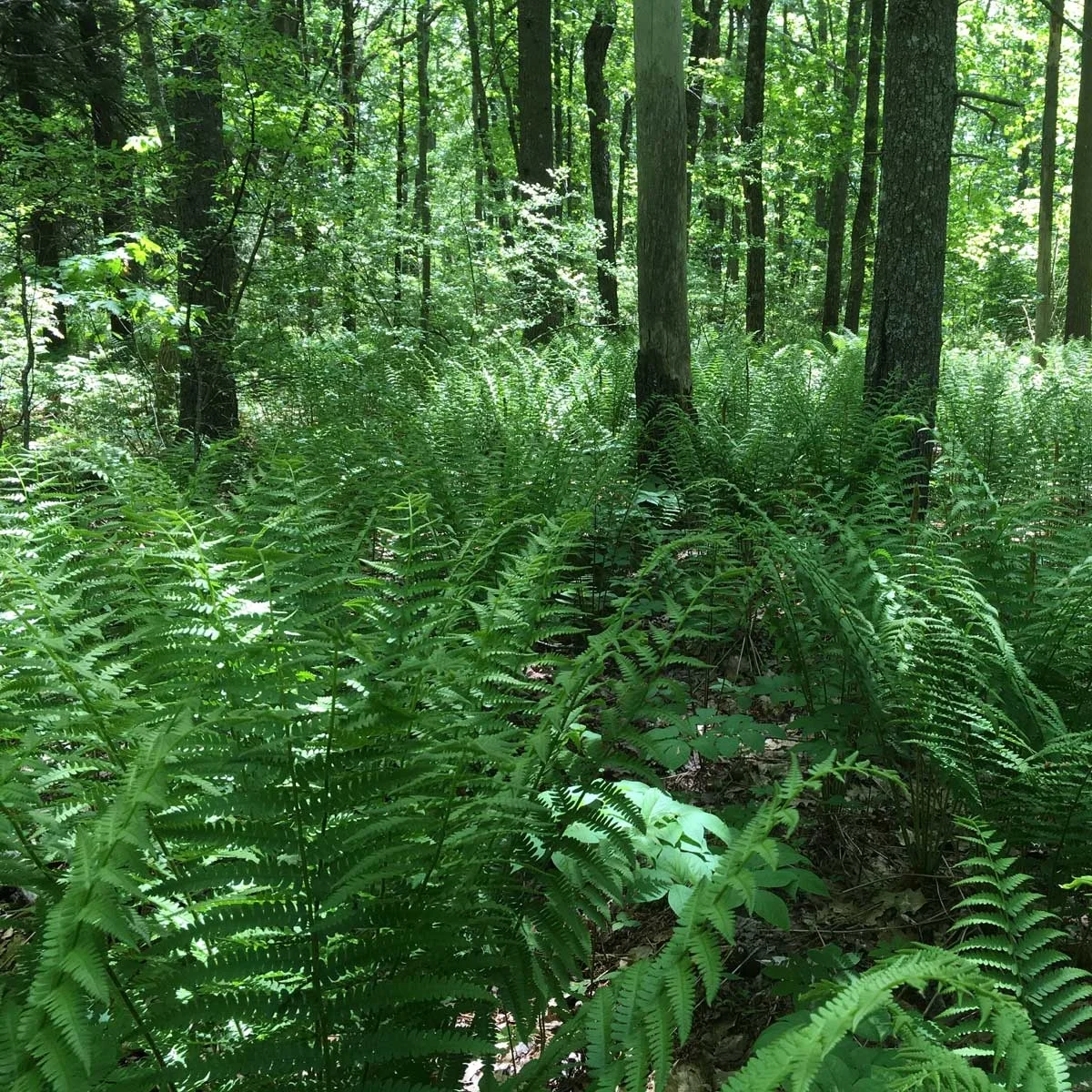“It is hereby declared to be the policy of the commonwealth that all lands...now under the care, custody, and control of the commissioner or hereafter acquired ...shall...be preserved in their natural state and that no commercial activities except those essential to the quiet enjoyment of the facilities by the people shall be permitted. All such lands shall be designated as parks or reserves and shall not be leased, sold, or exchanged, or be taken by any corporation, public or private, nor shall the timber thereon be sold, removed or destroyed, except...where...[proven] necessary to...ensure public health and safety...and [environmental protection].”
For more information on this important forest protection bill, click the link below to download a one-page fact sheet.
More than 60 percent of Massachusetts is covered by forests. If kept intact, these forests will continue to provide climate, habitat, cultural, recreational, and economic benefits. If they are cut, these values will be diminished or lost. None of state’s public conservation lands have guaranteed protection from logging. The petition below calls for a moratorium on logging on state-owned lands until the public has a chance to take a fresh look at how they are being managed.
To keep informed about this important issue, join our Save Mass Forests email list below.
Windsor State Forest clearcut (Matera)
Logging of State and Municipal Lands
Massachusetts is fortunate to have 610,000 acres of state conservation lands, stretching from the Atlantic Coast to Mount Greylock. However, none of these lands are permanently protected from logging and other industrial exploitation. Most of the state's 300,000 acres of county and municipal forests are also not protected from these uses. Industrial forest interests claim that logging is good for forest health, wildlife, climate, and the economy. In fact, logging harms all of these values. Here is a shocking overview of how our state lands have been damaged by logging. Now, citizens are fighting back. Local residents are strongly opposing the plan to log Wendell State Forest. A new citizen petition is calling on the governor to enact a moratorium on logging of state-owned lands across Massachusetts.
Burning wood pellets
Woody Biomass Subsidies
Industrial forestry and biomass energy interests are pushing expanded programs to cut down forests and burn them for heat and electricity. They ignore the fact that this promotes deforestation, releases twice as much carbon as burning coal, and spews toxic pollution that harms public health. Despite the many reasons to oppose wood energy, Massachusetts state agencies have approved regulations that offer public subsidies and incentives to promote the logging and burning of forests for heat. Many nonprofit groups and concerned citizens are opposing this irresponsible policy. The Massachusetts bill H.853 would ban some of the state biomass energy subsidies. You can help by asking your state legislators to support this important bill.
Wood pellet factory, New Hampshire
Mohawk Trail Woodlands Partnership
The Mohawk Trail Woodlands Partnership (MTWP) is an expensive, publicly funded project that fails to deliver on its glowing promises. It claims to promote “sustainable” forestry, forest conservation, and local economic development, but in fact it would primarily promote increased logging, expansion of wood pellet heat in schools and homes, and construction of a wood pellet factory. It claims to be a grassroots-based project, but in fact it was developed in 2011 by bureaucrats in the Massachusetts Department of Conservation and Recreation (DCR). It claims to have broad public support, but most people have never even heard of the MTWP. RESTORE and other organizations have fought against this boondoggle and will continue to oppose it wherever possible.
Maturing forest, western Massachusetts
Private Forest Land Protection
The vast majority of Massachusetts forest lands are in private ownership. Forestry interests are trying to persuade more landowners to log their lands. Most landowners prefer to keep their forests standing and there is a state program to provide tax incentives for this. However, this program provides more support for logged forests and this is only temporary. RESTORE is working with other organizations to promote change in state programs that help private landowners to keep their forests standing and to ensure that this protection is permanent.






